At the end of March, we met with a group of group of students from Reagan High School who were working in or looking for internships in STEM fields. We heard three key concerns:
- Students want a chance to exercise the skills they’ve been developing
Students want the internship to be a chance to learn - Outside a few narrow fields, STEM internship opportunities for high school students are difficult to find
- If students don’t get a chance to grow and learn, an internship is “just a job”, and those take a lot less effort to find.
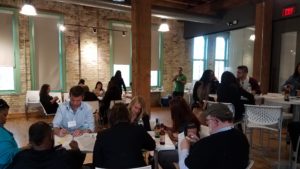 In our May session we explored several issues around creating effective STEM internships for high school students. We began the evening with a review of what we heard from the Reagan students, and identified a few additional issues:
In our May session we explored several issues around creating effective STEM internships for high school students. We began the evening with a review of what we heard from the Reagan students, and identified a few additional issues:
- Internships are a new norm for K-12 schools (which have been focused on college prep)
- Lack of buy-in around career readiness from industry, schools, and students
- A reliance on university students for internships may be misinformed, particularly when it comes to computer programming
- High level of on-going coordination required
- It’s difficult for companies to identify schools with strong programs (from which to recruit)
Round 1
With this as background, we asked participants to inventory the problems to be addressed, and with the help of a couple of volunteers, sorted those responses into the following groups:
Potential Careers
- Schools not doing enough to introduce the world of possibilities to students
- Where do we find the resources to support students who want internships
- High school students as seniors still only know basic STEM careers (doctor, nurse, engineer)
Logistics
- Students need summer pay
- Students do not have transportation
- Companies not willing to work with MPS schools
- Companies not looking to the “experts” in the schools to assist w/career experiences
- Let’s not forget about the MPS HS kids not in Reagan, King, Riverside
- Internship logistics– not appealing or logistically difficult for minors/teens
- If internships don’t work, what are other options?
- Companies moving out of the city
- Resources & funding both in education & industry
- Legal barriers– minors, health care specifically
- Transportation needs
- Business & school partnership
- Business support
- How do we educate employers on the importance of internships
- How to develop a mutually beneficial work relationship between employer and student
- AP Java or AP anything can’t be the gatekeeper to these opportunities
- Not having a dedicated person (100%) at each school focusing on career readiness
- One day field trips/job shadows get kids excited but are disconnected or not continued
- Students lose STEM engagement
- Helping our community understand the world of work has changed
Exposure
- Exposure to different career fields
- Exposure to local companies/orgs
- How can we expose students to career based learning experiences so they know what they want to do/don’t waste time & $ post-secondary?
- Career based learning experiences in building
- Off-site experiences
- Job shadows
- High schoolers need a way to explore future options
- Students liking “engineering” but not wanting to further pursue as a career
- Kids go to college not knowing what they to study/do for a living
- Convincing students/parents to look at the bigger picture– experience vs test scores
- Expose kids to advanced topics earlier
- Internships/work experiences that offer meaningful ways to engage students in school
- How to increase significant student exposure to careers
- We want to grow MKE as tech hub but students have little to no tech exposure
- Real world work experience for teens
Equity/Support
- Equity– females & underrepresented minorities in IT
- Kids need significant role models
- Generate a community culture of learning and support
- Family involvement (for support & buy-in)
- Increase talent pipeline
- Frequent, immediate, continuous check-in and support
- How do we monitor long-term investment and impact on interns
- Viewing high schoolers as capable of doing meaningful work
- To build a common system that supports students and industries
- Funding to allow access for every kid who wants to experience
Teaching Skills
- Develop human skills — robot-proof education
- Teachers not always equipped to assist w/career readiness
- Pre-employment skills building
- Shape curriculum to better match the real world
- Social-emotional skill building
- Students need employability skills
- Application of skills vs content knowledge
- Kids don’t have the soft skills employers seek
- Ensuring school coursework is relevant– tied to industry competencies
- Communicating K-12 → post-secondary →industry and adjusting as skills adaptively grow
- Stop treating tech like a science and more like an art
- Health care based research projects
- Project based internship programs– what does this look like in health care?
- Career readiness after leaving the academic environment
Round 2
We chose three areas to focus on for the remainder of the session, and split into groups to explore each topic. Here’s what we came up with:
Teaching Skills
Problem:
- Conflicting priorities of K-12 educators, industry, and curriculum
Driving factors/barriers:
- Lack of regional coordination
- Lack of frequent and effective collaboration
- Culture of STEM education
- Educators are at capacity
Models:
- TEALS (Microsoft program to tap industry professionals to launch computer science programs in schools.
- SafeNet’s high school internship program (company treats program as a donation, students work on tech projects for non-profits)
Parties Involved:
- Students
- Educators
- Industry
- Parents
Exposure
Problem:
- Students lack exposure to career based learning experiences
Driving factors/barriers:
- Lack of staff buy-in
- Curriculum incorporation
- Knowledge of industry
- Lack of clear District/Industry connections
Models:
- Staff PD
- Industry
- Curriculum support
- Look at successful districts/schools
Parties Involved:
- Top down involvement (administration to teachers)
- Industry
- Post secondary educators/administration
Equity/Support
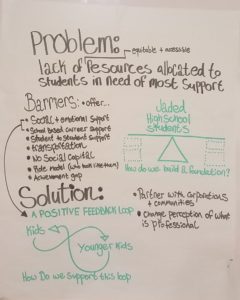 Problem:
Problem:
- Lack of equitable & accessible resources allocated to students in need of most support
Barriers:
- [Lack of] Social & emotional support
- [Lack of] School based career support
- [Lack of] Student to student support
- [Lack of] Transportation
- No social capital
- [Lack of] Role models (who look like them)
- Achievement gap
Solution:
- Positive feedback loop of near-peer mentors
- Partner with corporations and communities
- Change perception of what is professional
Thanks again to The Commons for providing the space, Brian King for facilitating, and to our featured participants for the experience and insight they brought to the discussion:
Tamera Coleman– Internship Coordinator, Milwaukee Public Schools
Matthew Hunt– College & Career Readiness Specialist, New Berlin High School
Ariana Radowicz– University Relations, Rockwell Automation
Molly Schuld– Science Teacher, Ronald Reagan High School
Laura Schmidt, Strategic Advisor to the Superintendent – School District of New Berlin

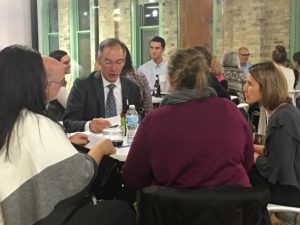 For this session, we split the attendees across 5 tables, where each participant shared their thoughts on key goals, and came together as a team to share those the felt were most important with the entire group. These included:
For this session, we split the attendees across 5 tables, where each participant shared their thoughts on key goals, and came together as a team to share those the felt were most important with the entire group. These included: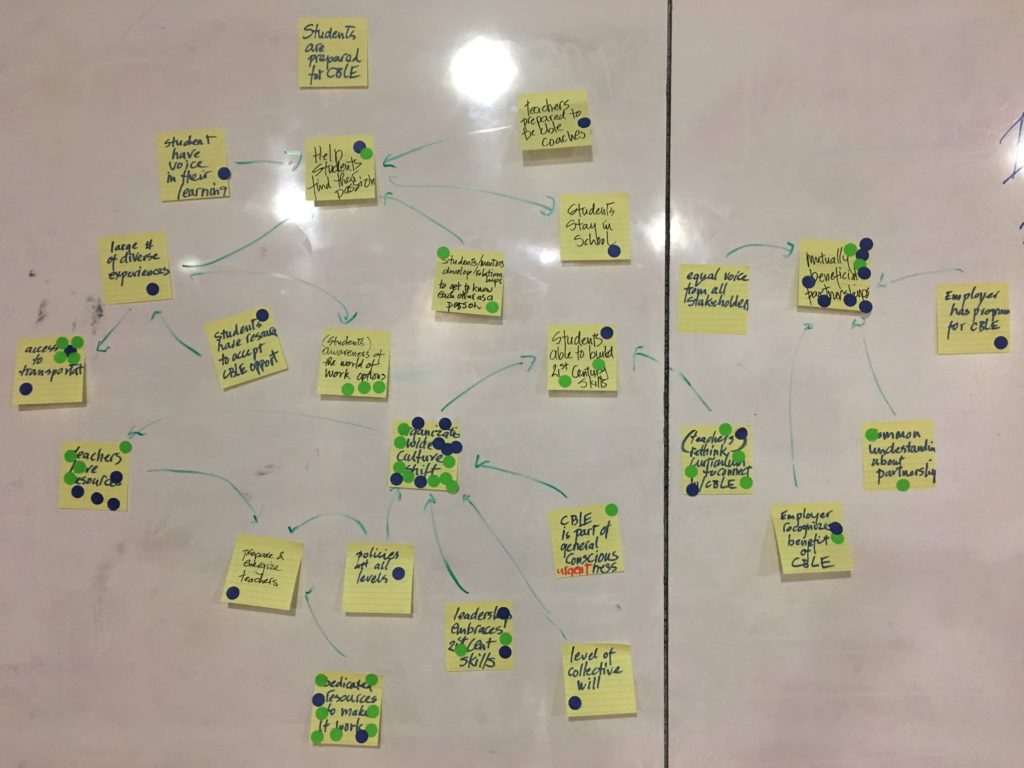
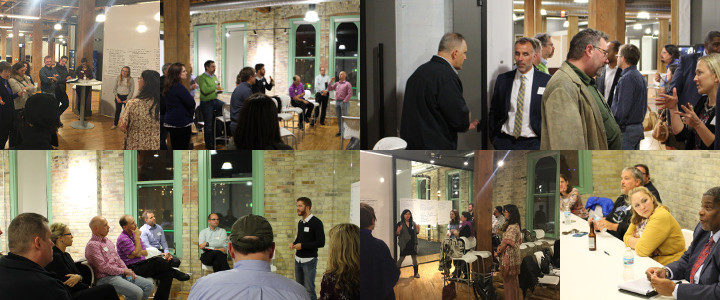

 Allan Erickson, Curriculum Specialist – Career and Technical Education — Milwaukee Public Schools
Allan Erickson, Curriculum Specialist – Career and Technical Education — Milwaukee Public Schools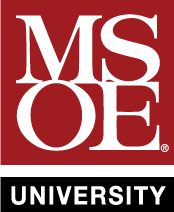 DeAnna Leitzke, Milwaukee School of Engineering
DeAnna Leitzke, Milwaukee School of Engineering Laura Schmidt, Strategic Advisor to the Superintendent – School District of New Berlin
Laura Schmidt, Strategic Advisor to the Superintendent – School District of New Berlin